| Srl | Item |
| 1 |
ID:
036157
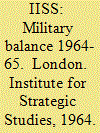

|
|
|
|
|
| Publication |
London, Institute for Strategic Studies, 1964.
|
| Description |
43p.pbk
|
| Contents |
Acc. No. 015107 (Include in this Volume) : 1964-1965
Acc. No. 000061 (Include in this Volume) : 1966-1967
Acc. No. 005530 (Include in this Volume) : 1967-1968
Acc. No. 014447 (Include in this Volume) : 1968-1969
Acc. No. 003127 (Include in this Volume) : 1969-1970
Acc. No. 009779 (Include in this Volume) : 1971-1972
Acc. No. 011871 (Include in this Volume) : 1973-1974
Acc. No. 013676 (Include in this Volume) : 1974-1975
|
|
|
|
|
|
|
|
|
|
|
|
Copies: C:1/I:0,R:1,Q:0
Circulation
| Accession# | Call# | Current Location | Status | Policy | Location |
| 015107 | 355.03/IIS 015107 | Main | On Shelf | Reference books | |
|
|
|
|
| 2 |
ID:
120744
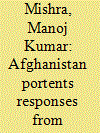

|
|
|
| 3 |
ID:
113503
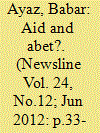

|
|
|
| 4 |
ID:
139831
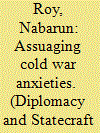

|
|
|
|
|
| Summary/Abstract |
This analysis examines how Indian diplomacy enabled Burma and Ceylon to turn down requests by the West to join the Southeast Asian Treaty Organisation [SEATO]. It shows how this diplomacy allowed elements in Burma and Ceylon that favoured a non-aligned approach to hold their own in the face of calls to join SEATO. Contrary to the depiction of Indian diplomacy as being simply idealistic and given to pious invocations, this article shows how India used different resources to strengthen the non-aligned constituency in the region. It also shows that whilst many de-colonised states favoured non-alignment, threats to their security led some to align with the Great Powers. Whilst Burma and Ceylon did perceive a clear threat from communism, the example set by India in its own foreign policy, its aid policies, and its relationship with China helped them reduce their fear of communism and stay committed to non-alignment.
|
|
|
|
|
|
|
|
|
|
|
|
|
|
|
|
| 5 |
ID:
152003
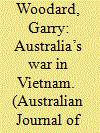

|
|
|
|
|
| Summary/Abstract |
Australia’s commitment in Vietnam can be interpreted as a small ally drawing its superpower partner into war for its own ends. Two studies by eminent Australian authors throw light on the role of human agency, and in so doing bring Australian historiography of the war closer to the trend in the United States. Peter Edwards’s history just about describes Vietnam as ‘Menzies War’. However, he finds no new sources on Menzies’s mindset, and diminishes the roles of his foreign ministers, Garfield Barwick and Paul Hasluck. The late Geoffrey Bolton’s intimate biography of Hasluck shows him as an active minister and also that his private papers are thin on Vietnam, the part of his distinguished career on which he never wrote. The Cabinet meeting of 17 December 1964 reveals much more about Australian decision-making on going to war than can be gleaned from Edwards’s cursory treatment and Bolton’s second-hand account. Barwick’s different approach, and even Hasluck’s last-minute caution, show Australia had a choice. Barwick, if he had remained Foreign Minister, might have kept Australia out of the Vietnam war, so freeing it to continue to play a leading regional political role.
|
|
|
|
|
|
|
|
|
|
|
|
|
|
|
|
| 6 |
ID:
127095
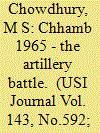

|
|
|
| 7 |
ID:
093937
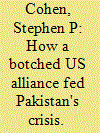

|
|
|
|
|
| Publication |
2010.
|
| Summary/Abstract |
The sense of being used, abused, and discarded now constitutes a central theme in Pakistan's ties to America. . . ."
|
|
|
|
|
|
|
|
|
|
|
|
|
|
|
|
| 8 |
ID:
140624
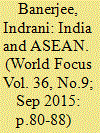

|
|
|
|
|
| Summary/Abstract |
Keeping in tune with the backdrop, in 1967, when ASEAN was founded by Thailand, the Philippines, Malaysia, Singapore and Indonesia, India reacted, as Prof. D.R. Sardesai notes, with ‘coolness, indifference, misgivings and at times, hostility.’ It was seen as an instrument of neo-colonialism and a reincarnation of SEATO. India continued to ignore the fact that the ASEAN states were, in their own distinctive way, preserving their independence and keeping their distance from the major powers. The 1971 Kuala Lumpur Declaration of ASEAN, in fact, sought to preserve Southeast Asia as a ‘Zone of Peace, Freedom and Neutrality.’
|
|
|
|
|
|
|
|
|
|
|
|
|
|
|
|
| 9 |
ID:
035779
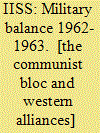

|
|
|
|
|
| Publication |
London, The Institute for strategic studies., 1962.
|
| Description |
28p.pbk
|
| Contents |
Acc. No. 002006 (Include in this Volume) : 1962-1963
Acc. No. 002173 (Include in this Volume) : 1963-1964
Acc. No. 002174 (Include in this Volume) : 1964-1965
Acc. No. 002175 (Include in this Volume) : 1965-1966
Acc. No. 005529 (Include in this Volume) : 1966-1967
|
|
|
|
|
|
|
|
|
|
|
|
Copies: C:1/I:0,R:1,Q:0
Circulation
| Accession# | Call# | Current Location | Status | Policy | Location |
| 002006 | 355.03/IIS 002006 | Main | On Shelf | Reference books | |
|
|
|
|
| 10 |
ID:
094651
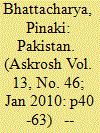

|
|
|
| 11 |
ID:
150851
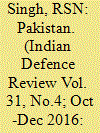

|
|
|
| 12 |
ID:
127286
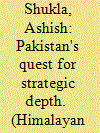

|
|
|
| 13 |
ID:
085845


|
|
|
| 14 |
ID:
127397


|
|
|
| 15 |
ID:
143827


|
|
|
|
|
| Publication |
New Delhi, Vij Books India Pvt. Ltd, 2015.
|
| Description |
77p.pbk
|
| Standard Number |
9789384464721
|
|
|
|
|
|
|
|
|
|
|
|
Copies: C:1/I:0,R:0,Q:0
Circulation
| Accession# | Call# | Current Location | Status | Policy | Location |
| 058473 | 327.5105491/UPA 058473 | Main | On Shelf | General | |
|
|
|
|
| 16 |
ID:
132031
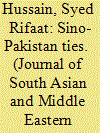

|
|
|
| 17 |
ID:
029974


|
|
|
|
|
| Publication |
Bangkok, SEATO Military Technical Training School, NA.
|
| Description |
v.p.,figure
|
|
|
|
|
|
|
|
|
|
|
|
Copies: C:1/I:0,R:0,Q:0
Circulation
| Accession# | Call# | Current Location | Status | Policy | Location |
| 001433 | 355.56/SKI 001433 | Main | On Shelf | General | |
|
|
|
|
| 18 |
ID:
044834


|
|
|
|
|
| Publication |
Bangkok, South-East Asia Treaty Organization,
|
| Description |
41p.
|
|
|
|
|
|
|
|
|
|
|
|
Copies: C:1/I:0,R:0,Q:0
Circulation
| Accession# | Call# | Current Location | Status | Policy | Location |
| 009360 | 355.0310954/SOU 009360 | Main | On Shelf | General | |
|
|
|
|
| 19 |
ID:
113806
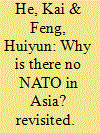

|
|
|
|
|
| Publication |
2012.
|
| Summary/Abstract |
Why did the US prefer multilateral alliances in Europe, but bilateral alliances in Asia after World War II? Rationalists and constructivists debate the impact of power, institutions, and identities in explaining this highly contested question. We introduce a new argument embedded in prospect theory from political psychology - a prospect-threat alliance model - to account for the variation in US alliance strategy toward Europe and Asia after World War II. Through setting the threat level as a reference point for leaders' prospects of gains or losses, we suggest: (1) high threats frame decision-makers in a domain of losses, and multilateral alliances become a favorable alliance choice because states are more likely to take the risk of constraining their freedom of action in return for more help from multiple allies as well as for avoiding further strategic losses; (2) low threats position leaders in a domain of gains, and bilateral alliances win out because states are risk-averse in terms of maintaining their freedom of action in seeking security through alliances with fewer allies. US alliance policy toward Asia after World War II is a within-case analysis that tests the validity of the prospect-threat alliance model.
|
|
|
|
|
|
|
|
|
|
|
|
|
|
|
|
| 20 |
ID:
032479
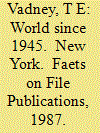

|
|
|
|
|
| Publication |
New York, Faets on File Publications, 1987.
|
| Description |
570p.Hbk
|
| Standard Number |
0816018154
|
|
|
|
|
|
|
|
|
|
|
|
Copies: C:1/I:0,R:0,Q:0
Circulation
| Accession# | Call# | Current Location | Status | Policy | Location |
| 032113 | 909.824/VAD 032113 | Main | On Shelf | General | |
|
|
|
|